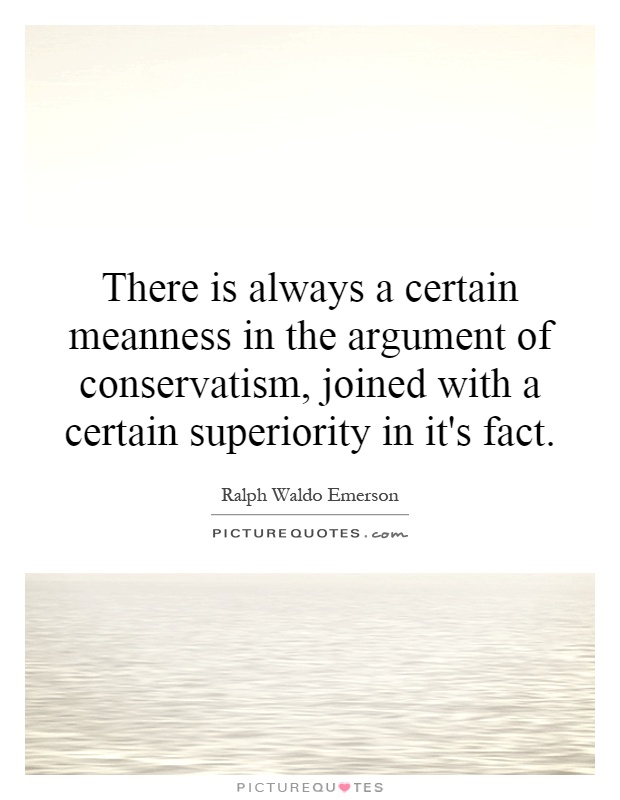There is always a certain meanness in the argument of conservatism, joined with a certain superiority in it's fact

There is always a certain meanness in the argument of conservatism, joined with a certain superiority in it's fact
Ralph Waldo Emerson, a prominent American essayist, lecturer, and poet, was known for his transcendentalist philosophy and his belief in individualism and self-reliance. In his essay "Self-Reliance," Emerson explores the idea that true greatness comes from trusting oneself and following one's own instincts, rather than conforming to societal norms or relying on the opinions of others. This theme of self-reliance is closely tied to the quote, "There is always a certain meanness in the argument of conservatism, joined with a certain superiority in its fact."Emerson's statement suggests that conservatism, with its emphasis on tradition, stability, and resistance to change, can often be characterized by a narrow-mindedness or lack of generosity in its arguments. Conservatives may be quick to dismiss new ideas or alternative perspectives, clinging to the status quo and resisting progress. This rigidity can lead to a sense of superiority, as conservatives believe they possess the truth or the correct way of doing things.
However, Emerson also acknowledges that there is a certain strength in conservatism's adherence to facts and proven methods. Conservatives often rely on evidence, data, and historical precedent to support their arguments, which can lend a sense of authority and credibility to their positions. This commitment to facts can be seen as a form of intellectual rigor and discipline, which can be admirable in its own right.
Emerson's critique of conservatism can be seen as a call to balance tradition and progress, stability and change. While conservatism may have its merits in terms of factual accuracy and stability, it can also be limiting in its refusal to consider new ideas or alternative viewpoints. Emerson encourages individuals to trust their own instincts and beliefs, rather than blindly following the dictates of tradition or authority. By embracing self-reliance and independence of thought, individuals can cultivate a sense of personal greatness and authenticity that transcends the constraints of conservatism.












 Friendship Quotes
Friendship Quotes Love Quotes
Love Quotes Life Quotes
Life Quotes Funny Quotes
Funny Quotes Motivational Quotes
Motivational Quotes Inspirational Quotes
Inspirational Quotes